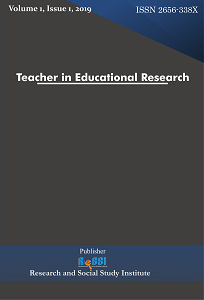Kecerdasan emosional, motivasi, dan kemandirian sebagai prediktor hasil belajar seni budaya di sekolah menengah kejuruan
DOI:
https://doi.org/10.33292/ter.v6i2.505Keywords:
Kecerdasan Emosional, Motivasi Belajar, Kemandirian Belajar, Hasil Belajar Seni Budaya, Regresi BergandaAbstract
Penelitian ini bertujuan menelaah pengaruh kecerdasan emosional, motivasi belajar, dan kemandirian belajar terhadap hasil belajar Seni Budaya pada siswa kelas X OTKP SMK YPE Sawunggalih Kutoarjo tahun pelajaran 2020/2021. Desain penelitian kuantitatif korelasional dengan cluster random sampling; dari populasi 93 siswa diperoleh sampel 75 siswa. Data dianalisis menggunakan statistik deskriptif, uji prasyarat, serta regresi sederhana dan regresi berganda untuk menguji hipotesis. Hasil menunjukkan kontribusi positif masing-masing prediktor terhadap hasil belajar: kecerdasan emosional memberikan sumbangan efektif 3,82% (sumbangan relatif 25,10%), motivasi belajar 6,00% (39,46%), dan kemandirian belajar 5,39% (35,44%). Secara simultan, ketiga variabel berpengaruh positif dan sangat signifikan terhadap hasil belajar dengan sumbangan efektif total 15,21%, sedangkan sisanya dipengaruhi faktor lain di luar model. Temuan ini menegaskan pentingnya penguatan regulasi emosi, penggerak motivasional, dan kebiasaan belajar mandiri untuk mendukung capaian Seni Budaya. Implikasi praktis mencakup perancangan intervensi kelas yang menumbuhkan refleksi emosi, tujuan belajar yang jelas, dan strategi belajar mandiri terstruktur; di tingkat sekolah, program pengembangan karakter dan bimbingan belajar dapat diorkestrasi agar efek ketiga faktor semakin optimal.
Emotional intelligence, motivation, and autonomy as predictors of cultural arts achievement in vocational high schools
Abstract: This correlational quantitative study examines the effects of emotional intelligence, learning motivation, and learning autonomy on Cultural Arts achievement among Grade-X OTKP students at SMK YPE Sawunggalih Kutoarjo in the 2020/2021 academic year. Using cluster random sampling, 75 students were selected from a population of 93. Data analysis comprised descriptive statistics, assumption checks, and hypothesis testing via simple and multiple regression. Results indicate positive contributions of each predictor to achievement: emotional intelligence accounted for an effective contribution of 3.82% (relative 25.10%), motivation 6.00% (39.46%), and learning autonomy 5.39% (35.44%). Jointly, the three variables had a positive and highly significant effect with a total effective contribution of 15.21%, with the remainder explained by factors outside the model. These findings highlight the importance of strengthening emotional regulation, motivational drivers, and independent study habits to support Cultural Arts performance. Practical implications include classroom-level interventions that cultivate emotional reflection, clear learning goals, and structured self-regulated strategies; at the school level, character-building and study-skills programs can be orchestrated to further leverage the combined effects of the three factors.
Downloads
Published
How to Cite
Issue
Section
Citation Check
License
Copyright (c) 2024 Sigit Tri Wibowo

This work is licensed under a Creative Commons Attribution-ShareAlike 4.0 International License.

Teacher in Educational Research is licensed under a Creative Commons Attribution-ShareAlike 4.0 International License.
Based on a work at http://ejournal.ressi.id/index.php/TER.







